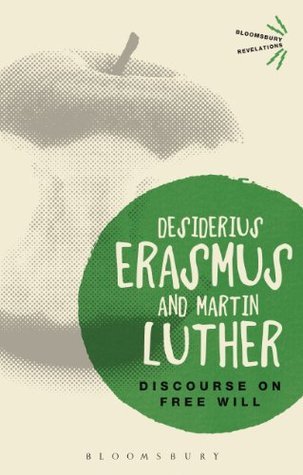What do you think?
Rate this book


154 pages, Kindle Edition
First published January 1, 1524
I am concerned with a serious, vital and eternal verity, yes such a fundamental one, that it ought to be maintained and defended at the cost of life itself, and even though the whole world should not only be thrown into turmoil and fighting, but shattered in chaos and reduced to nothing.
I do not especially want to quarrel with those who attribute everything to faith as the fountainhead, although it seems to me that faith and love, and love and faith come about and nurture each other mutually. Certainly faith is nurtured by love, as the flame in a lamp is nurtured by oil. For we have greater faith in him who we love dearly.